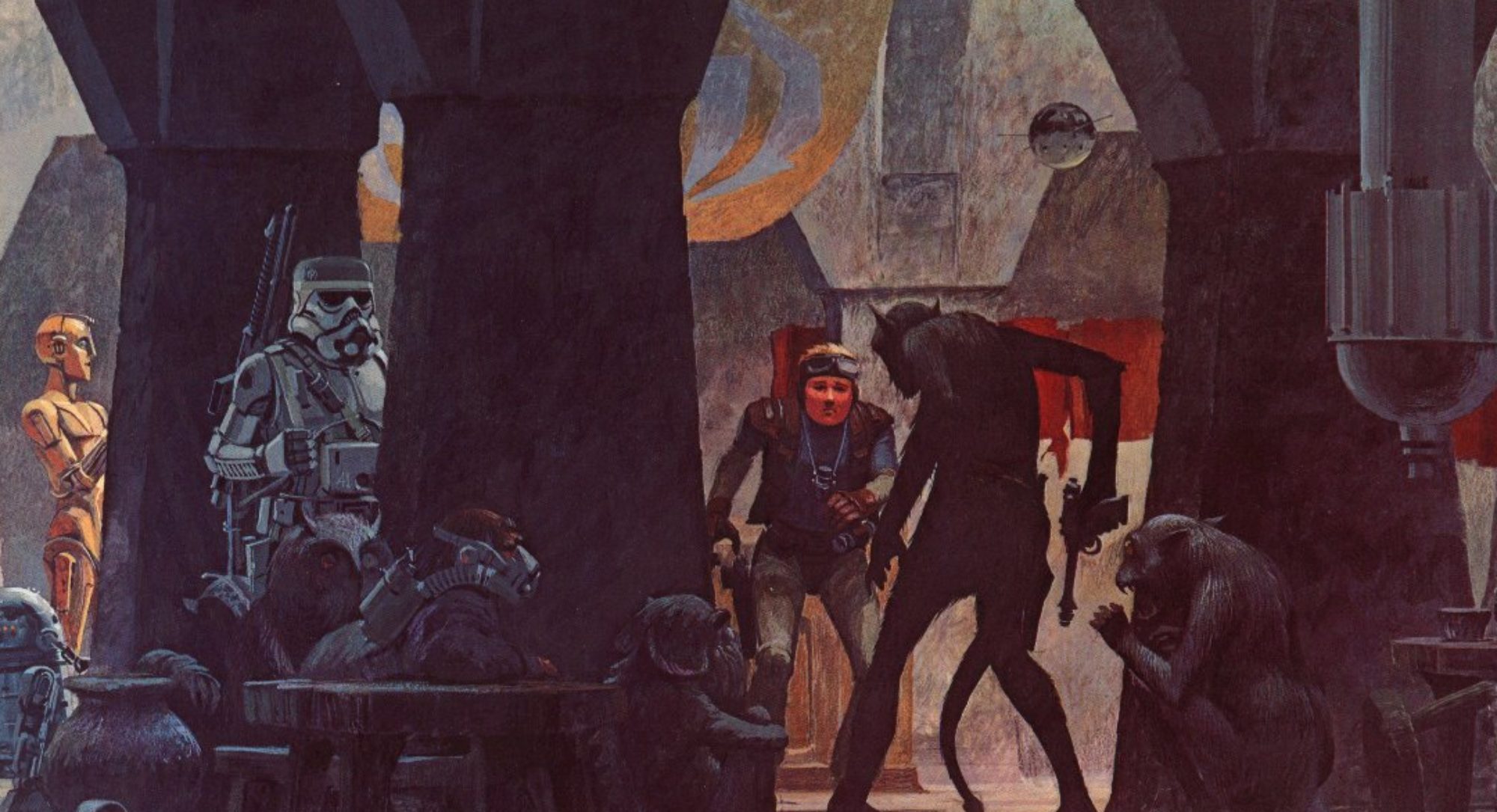 There’s been a discussion recently, centered around a new project guideline enacted by Kickstarter, which now prohibits “rewards in bulk quantities.” Since a lot of projects in the hobby games industry had special “retailer tiers”, whereby local game stores could get in on a Kickstarter, there’s been a lot of push-back on this new prohibition. Those of us who had successful, relatively high-profile Kickstarter projects have been asked for our opinions, or asked to sign a petition against the policy.
There’s been a discussion recently, centered around a new project guideline enacted by Kickstarter, which now prohibits “rewards in bulk quantities.” Since a lot of projects in the hobby games industry had special “retailer tiers”, whereby local game stores could get in on a Kickstarter, there’s been a lot of push-back on this new prohibition. Those of us who had successful, relatively high-profile Kickstarter projects have been asked for our opinions, or asked to sign a petition against the policy.
I won’t be signing, because I whole-heartedly agree with the policy.
Kickstarter is a method of crowd-funding creative efforts — and, in my opinion, shouldn’t be turned into a wholesale distribution network for retail. It should be about creators directly connecting with people who are backing ideas they love. That appears to have been the intention of the site all along, and this policy reinforces that.
The cry from retailers and their supporters is that this just another direct-to-consumer model which cuts the retailers out of the loop. To which I say: yes, it is, and I don’t have any problem with that.
 I used to be a games retailer. From 1988 to 1990, I worked for Titan Games and Comics in Atlanta. From 1993-1995, I worked as the games manager at T&T Comic Market in Lawrence KS. So it’s not as if I don’t have any sympathy for people working in retail — but the simple fact of the matter is: Things are changing. Direct-to-consumer is the model that works best for Creatives, and the tools exist to do that. Shoe-horning retail into that relationship is a nice gesture, but it’s a temporary fix at best — that effort would be better spent in figuring out ways that retail can change, to offer something unique themselves.
I used to be a games retailer. From 1988 to 1990, I worked for Titan Games and Comics in Atlanta. From 1993-1995, I worked as the games manager at T&T Comic Market in Lawrence KS. So it’s not as if I don’t have any sympathy for people working in retail — but the simple fact of the matter is: Things are changing. Direct-to-consumer is the model that works best for Creatives, and the tools exist to do that. Shoe-horning retail into that relationship is a nice gesture, but it’s a temporary fix at best — that effort would be better spent in figuring out ways that retail can change, to offer something unique themselves.
Also, bluntly, there are huge issues of entitlement at work here. Retailers have complained when publishers started offering direct sales from their own websites. Retailers have complained when publishers offered digital sales — that this move was somehow an effort to “cut them out.” And now, retailers are complaining about Kickstarter. The ironic part of all of this is that these efforts (direct sales, digital sales, crowdfunding) have grown as a direct response to a lack of support from retail, the majority of whom stock shallowly and only from the largest producers.
I offered a retail tier on the Kickstarter we did for Far West. 5 copies of the game at wholesale, with the option to increase that order. Only 8 retailers took advantage of that, despite widespread promotion (including coverage on i09). Not a lot, but hey — we made the effort, and are happy to serve those store owners who joined us. Of course, after the Kickstarter ended, and Far West started getting attention and discussion due to the amount we raised, etc. — I was contacted by many more retailers, complaining that we were “cutting them out” by doing a Kickstarter. Some vowed to never order any product from us. Some asked to be let in on the deal after the deadline, and raged when I said that the limited edition was Kickstarter-exclusive, but that they’d have the opportunity to order a retail edition in the future. That wasn’t good enough.
At the ICV2 Conference on Comics and Digital before the New York Comic Con in 2010, Mark Waid said: “We cannot allow ourselves to be held hostage by two thousand retail accounts.” (referring to the total estimated number of dedicated comic book retailers in the United States.) There are even fewer of those accounts that sell games. We’ve tried for years to make them happy, to acquiesce to their demands, even when those demands were to be let in on something that had grown out of their own short-sightedness. We made sure not to under-price them when we sold direct, via website or at Conventions. We made efforts to develop ways that they could earn money on digital sales (and, speaking personally, that was a multi-year effort at inclusion that still hasn’t been widely adopted, and you still see retailers complain about digital, despite those efforts to include them).
Enough. Not everything is about you, or should be.
I’m sorry that the business model is shifting beneath your feet, I really am — but in a question of whether to do something to benefit the creative, or to benefit retail, I’m going to side with the creative, every time.
Kickstarter is about connecting the creative with a consumer — a community-building effort that creates a fanbase, and (when it works as intended) that creates an ongoing relationship. Efforts to include retail in that equation were a move away from that focus, and I think that Kickstarter is right to pull focus back where it belongs.
Update, 8:12pm: Kickstarter has responded to the controversy by clarifying what they mean by ‘bulk.’
“As of today, we’re defining “bulk quantity” as a reward that offers more than ten of a single item. We feel that a limit of ten will prevent bulk commercial transactions while still allowing independent stores (the most frequent backers of these rewards) to back projects and share them with their communities. Projects are welcome to offer rewards intended for stores so long as they are in quantities of ten or less.”



Right on, Gareth!
Interesting perspective and I really do agree. These were my thoughts when I first started hearing about the decisions and it’s good to hear other voices in the industry expressing them.
Its funny because it make me think about lingo. I have always been a fan of brick and mortar stores and game stores as community. And I understood why they bought magic cards and minitatures instead of my beloved RPGs. We’d always referred to the cottage industry as a three tiered distribution model but in reality its a four tiered model. I support efforts to sell directly to fans.
Heck I even passed up Far West (which I am regretting) but in no way slight you guys for my decision to do that. I’ll just support the game from this point forward and watch your success with glee. :)
Thanks for your input,
– Don
So, because this isn’t an avenue you’re interested in, no one else should have access to it, either?
How progressive of you.
It is funny that I am having the same exact problem that you stated with my current kickstarter and retail stores. We contacted the 600+ store that took our free 3PP Pathfinder adventure for Free RPG Day, but when I offered them this kickstarter only 4 signed up with us. Not even 1%. The smart retailers always do well, the other ones, well I hope it works out for you…
*slow clap*
No, that’s not what I’m saying at all, Jim.
There is nothing stopping creators from offering product to retailers *outside of the Kickstarter framework*. If they want to, that’s what should be done, rather than mis-using the platform for something it was never intended for.
Cut the middleman!
I agree with bulk rewards for everyone, for people. Not for retailers.
Gareth,
The way you’ve set this up — agreeing with the prohibition against bulk rewards, and pointing out that you’ve personally had issue with your own bulk rewards — makes this piece sounds like you’re writing from a “I have a grudge” space.
And I see this whole bulk issue to be one that’s toxic because it’s ill-defined. You’re looking at one application of bulk. I’ve backed dice-oriented Kickstarters where rewards were more dice. I’ve seen tech projects where getting more of the eventual product is part of higher rewards, good for small products that having more of makes sense.
You don’t support retailers in this model? That’s fine, don’t do them. But what you’ve written is about not supporting *many models* when you say “I’m for no rewards in bulk quantities.” And that’s a shame.
– Ryan
Sometimes a cigar is just a cigar, Ryan. There’s too much unpacking of “space” going on. Fuck that. I have an opinion, my reasons are clear. No need to read into whether I’m in “grudge space” or “happen to agree with the site founder Yancey Stricker” space:
http://blogs.reuters.com/felix-salmon/2012/05/01/kickstarters-growing-pains/
Money quote: “Kickstarter is for creative projects,” he said. “We prefer creative expression to maximization.” More generally, he said that “we don’t allow corporations to use Kickstarter”, and talked of the “danger” that funders will view a project as a commercial transaction — spending money on a thing — as opposed to a funding transaction.”
That came off as way more bite-y than I meant it, now that I read it.
My point here is this: The site owners have a view of what their site is for. Read the link in my above comment. I agree with them.
End of.
The site owners have a statement that they give the press and say in public venues.
I’d argue that Kickstarter’s own actions have damaged their credibility in making that statement, and that this decision doesn’t represent a move toward that statement until we see how they define “bulk” and how selective their enforcement is.
But if it’s any consolation, Gareth, I really do hope that consistency of purpose carries the day rather than acquiescing to the bottom line, as you suggest that it should.
I am a publisher. I have had a successful board game project on ulule.com. The project offered two retailer rewards: 7 games with bonuses for 183 euro and 23 games with bonuses for 567 euro. Without the retailer’s support (28% of the project’s minimal funding threshold), the project would have failed. In my case, cutting retailers out will hurt my future projects. I find KS’s new policy an unwarranted involvement in the way project owners, who have no access to distributors, can try to reach retailers.
I just figured this whole thing out. This change in Kickstarter has directly changed an “ease route” that many were using to get retailer to “pre-order” and get them into their stores, NOT focus on getting the product direct to the customer. For me getting the product DIRECTLY to the customer is more important then getting it directly to a store who may or may not carry my product. The new question is are you focused on the retailer OR the single patron as your customer?
@Louis Porter Jr.: What is the issue with getting products into stores? A lot of project owners do not have access to the standard distribution channel. Why deny them this opportunity?
Piotr: Kickstarter is not a tool for getting products into stores — it was never intended to be. The site owners have been clear about that.
Other methods of getting into stores exist, and project owners are free to use those. But that’s not Kickstarter, despite the efforts of some projects to make it so.
Well, these smug Kickstarter people clearly have a grudge against retailers!
@Piotr: The issue is not with us doing kickstarter project, but with the retailers who tell us they want to “support us” AFTER the product is “successful” because doing it before is “too risky”.
For example, right now you can get 5 copies of my kickstarter project for $35 if your are a retailer ($7 a book with a retail price most likely of at least $20 – 65% saving). What I here most is retailers saying they can sell 5 copies of the product to the customers. If they sold 2 of the five, they would pay the cost at make $5 (14% profit). If they sold 3 copies they would make $25 profit. If they sold all 5 it would be $65 profit. Knowing these number are you telling me that you couldn’t sell TWO copies and make a profit? Then there IS a problem with the retail side of this discussion.
Kickstarter is a tool to get funds to manufacture a product. I’m struggling to see why stores should not be one of the places where this product is available for sale.
Piotr: Nobody is saying that. They’re just saying they shouldn’t get the product THROUGH Kickstarter. They can get it from the producer directly.
@Louis: Some retailers will take risks, some won’t. Having a platform-wide policy of preventing all retailers from supporting projects is not really a solution.
I still don’t know why a retailer shouldn’t be able to support a project through Kickstarter. Why force them to do it offline? Why deny them the exclusive bonuses, the “thank you” note in the rule book? If retailers’ business model is changing, why not let them take risks and coordinate a group order for their customers?
Gareth, I disagree with many things you said in your post.
You’re cetainly right, retail, and especially small retail has to change to keep up with changing markets, and we are cetainly not entitled to more than fair teatment from those around us.
However, I can’t see how Kickstarter was helping anyone by taking away my opportunity as a retailer to support projects I feel are worth supporting. I am one of those people who are backing ideas they love. Well, let’s make that like.
Crowdfunding has never been exclusively a direct to consumer model so why should Kickstarter be?
“Crowdfunding has never been exclusively a direct to consumer model so why should Kickstarter be?”
Because that’s how the site owners want it. Simple as that.
Also — I disagree with you: Crowdfunding has *always* been exclusively about direct-to-consumer. That’s sort of the entire point.
I thought that term “crowdfunding” implied funding directly from consumers, sort of like how “grassroots organizing” implies directly organizing voters.
“Because I say so” isn’t an explanation for anything. Besides you said you were wholeheartedly supporting that decision but other than a “retailers are going to be extict soon, so let’s not waste any effort on them” vibe I haven’t heard a good reason from you why retailers should not be able to participate.
Joshua, other than 20 internet-crowdfundigng campaigns that my company supported I’ve crowdfunded an electricity company an a business owner and an apartment building as a private citizen. Local schools and my hometown target me specifically as a business owner if they want crowdfunding for a project. If one of these campaigns wanted funding only directly from consumers, they certainly didn’t tell me. ;-)
I’ve given my reasons, Roland. I’m not sure why you seem to think I need to provide you with one that YOU consider “good.”
Probably just some unwarranted feeling of entitlement. ;-)
But all joking aside, I do not see myself as a retailer all that different from other backers. Of course I want to sell most of the books to earn a living, but if I didn’t believe in the quality of the projects, if I didn’t think these games will enrich the lives of the people that buy them from me and play the games, I wouldn’t back them and put them on my shelves.
@Roland: You said “I do not see myself as a retailer all that different from other backers.” If you were only able to get one copy like the majority of those funding kickstarters would this opinion change? Simply put are you supporting because you think it will sell in your retail location or because you like the project? This is an either or type of question, not a both type of question.
So far, I haven’t backed a project I wasn’t enthusiastic about because I thought it would sell well. Enthusiasm up to a certain point helps selling games, it’s like a self-fulfilling prophecy.
I might back projects in the future solely to sell the books, I have thought about backing your Obsidian Apocalypse Project although Pathfinder isn’t one of my favourite games.
I have backed several RPG and gaming projects without a retailer option for myself and I probably would have backed most of the projects in question for myself if they’d had no retailer options.
Most, but not all becuase having the advantage of being a retailer, I can’t be sure that I’d have chosen to pay a 80%-100% higher price plus international shipping several (and sometimes many) months in advance every time, if I’d be able to get the books through distribution eventually.
One of your arguments has been that Kickstarter was never intended to be a distribution system. My response is that systems and products often evolve new features and responses. One feature I see is that many retailers don’t like the existing distribution systems. Working through a distributor separates them from the creators. Working directly with the creators has other issues, like communication and payment models that kickstarter standardizes.
(pause for a 4.5 earthquake 3 miles away) You also mention that retailers have other channels. For many Kickstarters, the only other channel is direct contact. If many retailers do this, then this becomes an impediment to somebody developing a new product. If there’s many, then managing them becomes a full time job. They also need to manage the funding of the project separately. If they need $5,000 for development and some of it comes through Kickstarter and some of it comes outside, then the Kickstarter will fail, that part of the funding won’t happen and an otherwise successful project will fail due to this rule. In that case, this policy would impede the creation of a project. Handling all sources of funding through one interface would be handy.
I understand the ideal of crowdfunding, and I could see a problem if the majority of projects became funded by retailers. Right now it’s a small issue, and I think the harms from enforcing this policy cause more problems than what they’re trying to fix.